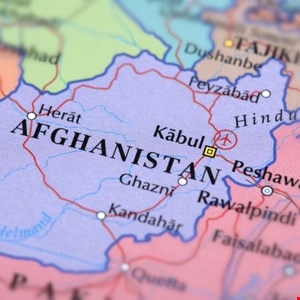- I wore the Whoop 5.0 for a month - it gave me the best of Oura Ring, Apple Watch, and more
- Custom AI models help MWAA deliver better airport experiences
- The latest Google Pixel 6a update may limit your battery - but you'll be glad to know why
- I replaced my living room TV with this 4K laser projector for a month - and didn't regret it
- M365 Copilot: New Zero-Click AI Flaw Allows Corporate Data Theft
Rights Group Advises Afghans to Delete Data

A human rights group based in the United States is encouraging Afghans to delete their data to prevent the Taliban from using it against them.
The Deobandi Islamist religious-political movement and military organization seized control of Afghanistan on August 15, two decades after they were removed from power by US-led forces.
With the official American mission to evacuate US citizens and Afghan allies from Afghanistan set to end tomorrow, Human Rights First is advising Afghans who remain in the country to erase their digital footprints.
The group published a Farsi-language version of its guide on how to delete digital history – produced last year to aid activists in Hong Kong – and shared advice on how to evade biometrics.
Welton Chang, chief technology officer at Human Rights First, told Reuters that in the most “dire circumstance,” the Taliban could use Afghans’ data to target those who had worked with the previous government, its security forces, and its foreign allies.
“We understand that the Taliban is now likely to have access to various biometric databases and equipment in Afghanistan,” the group wrote on Twitter on Monday.
“This technology is likely to include access to a database with fingerprints and iris scans and include facial recognition technology.”
On August 25, civil society groups, including Access Now, the Commonwealth Human Rights Initiative, Unwanted Witness and Electronic Frontier Foundation, issued an open statement calling for “an urgent safeguard of digital identity and biometric databases created in Afghanistan by development assistance missions, foreign governments previously aiding Afghan authorities, humanitarian actors, aid agencies, and the private sector vendors whose tools have been deployed to ensure they are not misused against people.”
According to the statement there are at minimum three digital identity systems known to have been in use recently in Afghanistan, including the e-Tazkira electronic national identity card system, and an Afghanistan Automated Biometric Identification System maintained by the Afghan Ministry of the Interior with support from the US government.
The third – the US military “Handheld Interagency Identity Detection Equipment” – were seized by the Taliban earlier this month along with the biometric data it stores.

